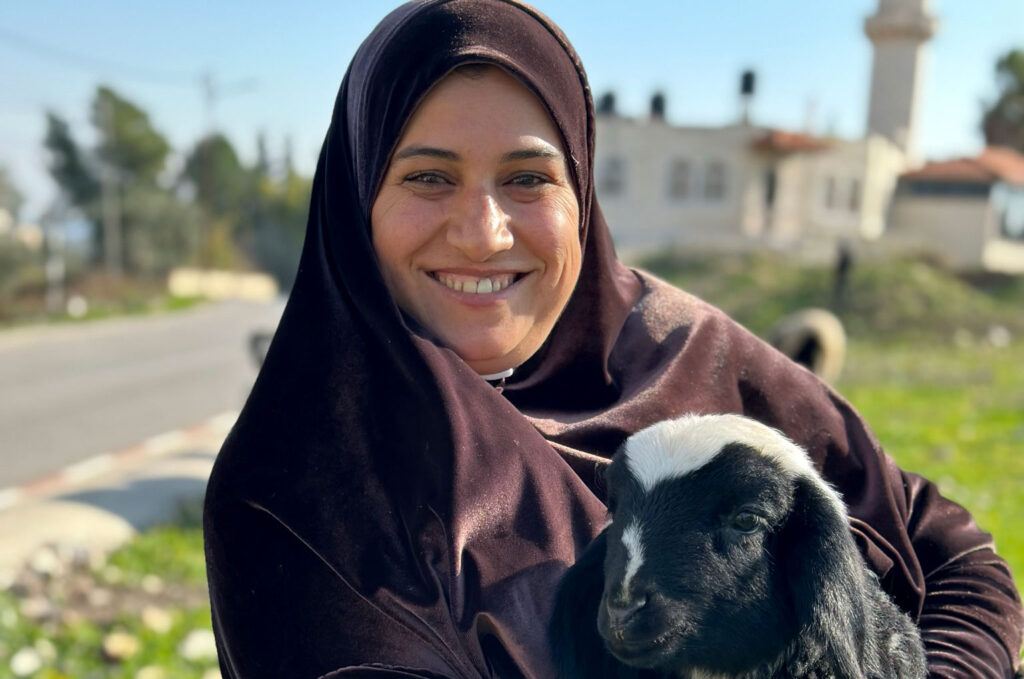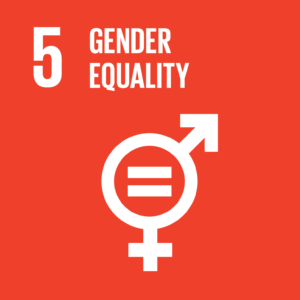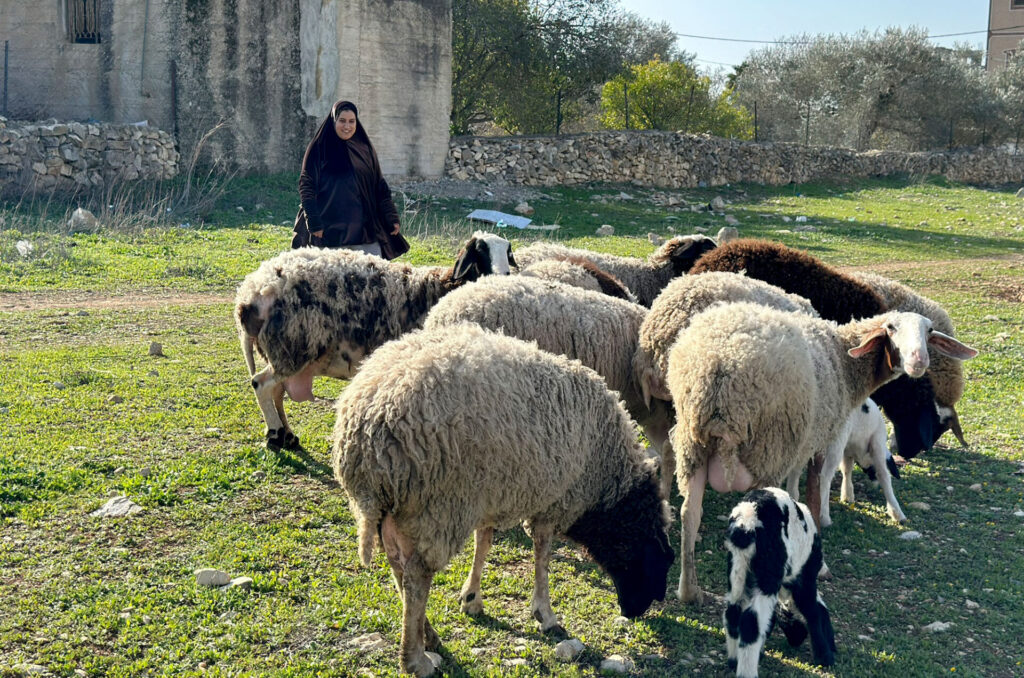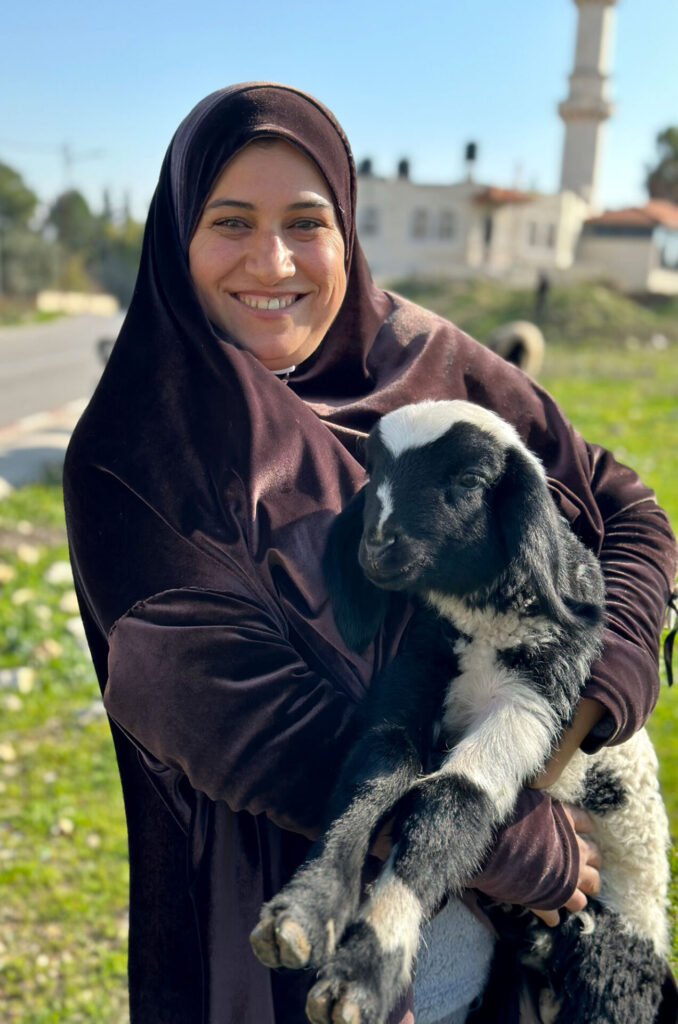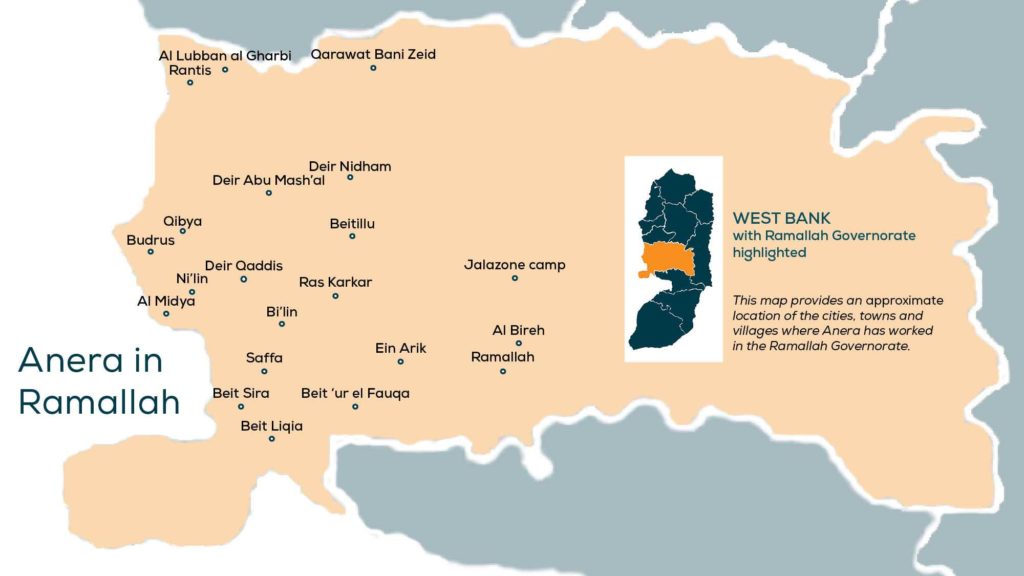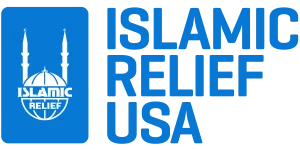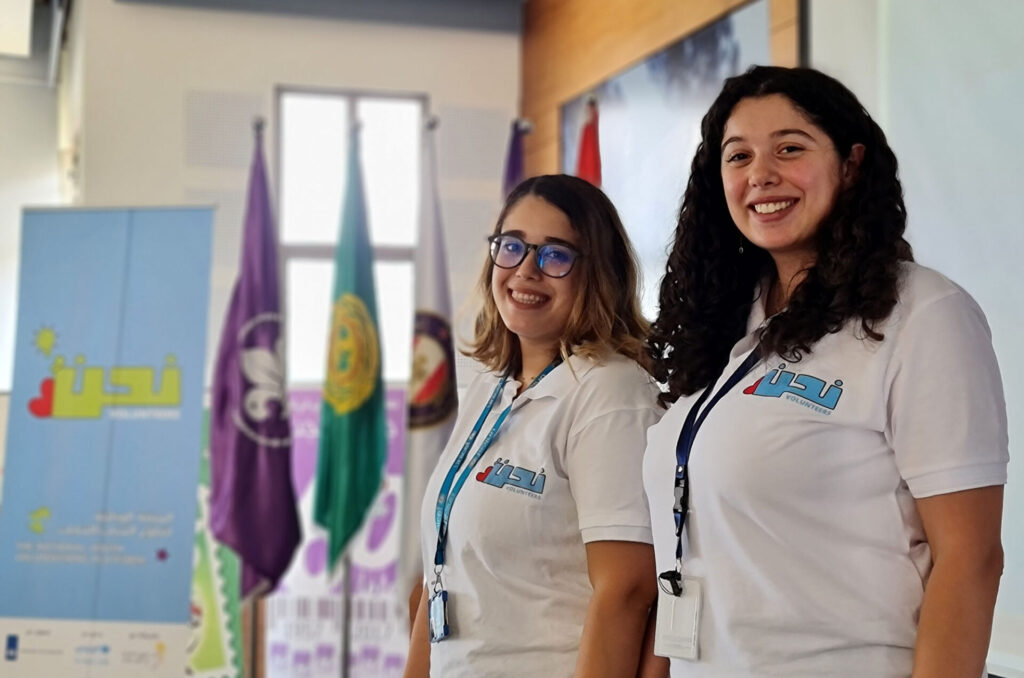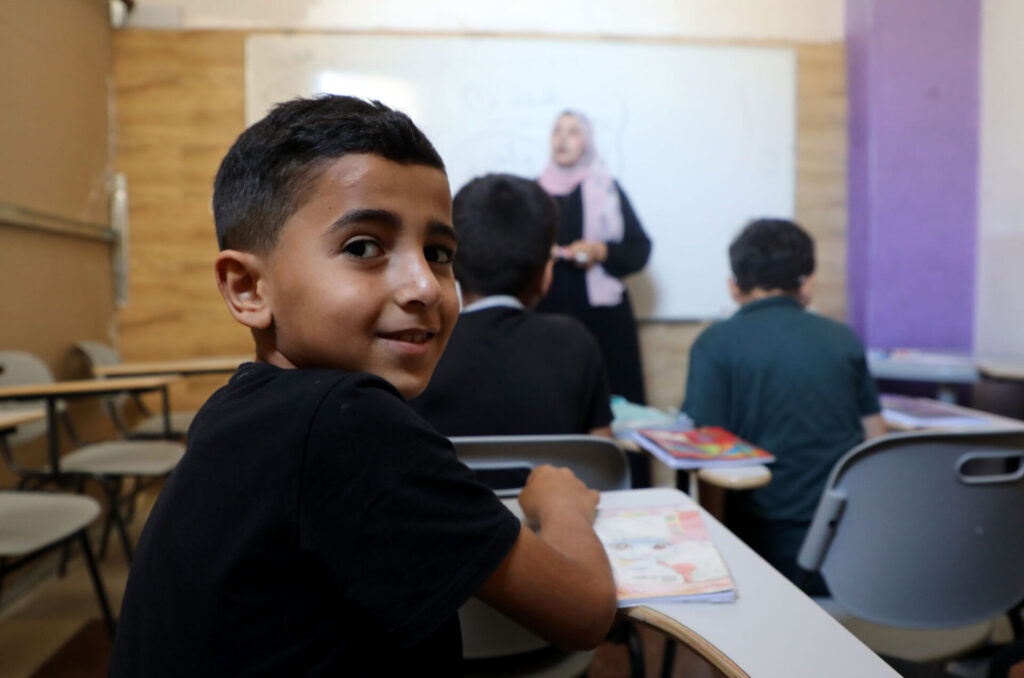Mar, 2023
Anera’s IRUSA-funded women’s economic empowerment program helped Alayeh and her family open a dairy business
For Alayeh and her husband of 11 years, the parents of three children, the wooly reality grazing on their land has been the best thing to happen in years.
“And why shouldn’t we consider them a part of our family? They’re the main reason my family is doing much better financially and we’re able to get by,” the 37-year-old Deir Ghassana resident tells us. Her village is well known for its hiking trails and historical sites northwest of Ramallah in the West Bank.
However, getting to this place was no easy journey for them. For starters, her husband works as a guard at a gas station. And he lost his right arm in an accident when he was just 16 years old.
“My husband knows a lot, but people won’t hire him because of his handicap and his job just doesn’t pay well. I saw him struggling to make ends meet and so I decided it was my duty to step in,” Alayeh says.
In desperate need of additional income, Alayeh cast about for an appropriate family business. Her first thought was to open a small supermarket, but she quickly changed her mind after considering her aunt’s grocery store at the end of the block. She was back to square one. The ideas weren’t coming but the bills were - and fast piling up.
After a brainstorming session with her husband, the two hit upon an idea for a sheep farming venture. “We had a small plot of land that we weren’t using and although I’ve never touched a sheep before, I said let me give it a try.” Fortunately, her husband had been around sheep when he was young and knew a good deal about the animals. But the funding was missing.


“My husband knows a lot, but people won’t hire him because of his handicap."
Through the Women Can program, funded by Islamic Relief USA, Anera provides material support, training and mentoring to women heads of households in vulnerable circumstances to enable them to launch small businesses.
“Anera’s women's empowerment program breathed life into our idea. Two years ago, we were given three sheep to support our idea and start our sheep farming business,” she says. It took a little time, but soon after the sheep started to multiply and their lives started improving.
“We make milk and cheese from our sheep for the family. But I’m not going to lie to you, it was very hard for me at the beginning. But my husband taught me everything I needed to know about sheep farming. And I also did my own research because I was determined to make my project a success,” Alayeh tells us.
Her husband cannot care for the sheep all by himself so Alayeh made this her own project. This has made them closer and happier as a couple. “It’s funny, I never thought I would be a shepherd. But in all honesty, it is such a rewarding job. I am passionate about what I do — and my family and I make the perfect team.”


"I’m not going to lie to you, it was very hard for me at the beginning."


"My family and I make the perfect team.”
Alayeh says they’ve grown incredibly attached to the sheep. “My children love spending time with them and playing with them,” she says.
Mornings are no longer lonely for the Palestinian female shepherd. After she sees her husband off to work and the kids to school, she grabs her shepherd’s stick and gets to work. From three sheep to 13, and selling six from the flock in less than two years, the sheep farming business is contributing greatly to the household.
“Recently, we have been getting so many phone calls from people wanting to buy sheep, people we know and people we don't know. I can imagine very soon we will be known as the people who sell sheep in my village and surrounding villages. My hard work and determination is truly paying off.”


"My hard work and determination is truly paying off."
The views expressed herein are those of Anera and shall not, in any way whatsoever, be construed to reflect the official opinion of IRUSA, its Islamic Relief affiliates, or its donors.

